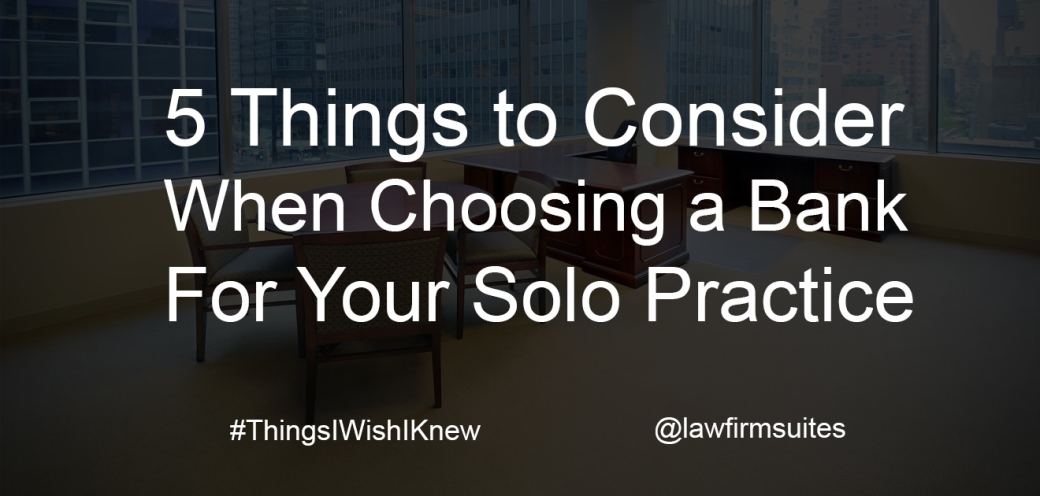In this week’s edition of Things I Wish I Knew, Joleena Louis discusses choosing a bank for your solo practice and how it helps keep her practice more organized.
When I started my practice, one of the first things I did was open business bank accounts.
TD Bank was a no brainer for me; I’ve done my personal banking with them for years. They are very convenient and, in my experience, have excellent customer service.
I spoke with a business banking specialist and they helped me decide on the types of accounts I needed.
I like to keep my banking simple, and TD Bank made that easy for me. The main things I considered for business banking were:
1. Convenient Location and Hours of Operation.
I knew that, especially in the beginning, I would be personally making bank deposits. Convenient locations was important to me.
There is a TD within walking distance of my apartment, my office and the court that I’m in the most. I also like that I can access the ATM 24 hours and most branches open early, close late and have long weekend hours. I’m not sure what the customer service hours are, but I’ve called on a Saturday evening and was able to talk to a human and not an automated machine.
2. Fees.
Starting out I really didn’t want to waste money on fees. For my operating account I had the option of no minimum balance but a monthly fee or a minimum balance but no fee.
I went with the latter because they gave me a few months to get the minimum balance before I was charged a fee. Occasionally I’ll go under and pay the fee, but that’s much better than paying on a regular basis.
3. Experience handling IOLA accounts.
The business banking specialist I worked with was familiar with IOLA and was able to walk me through the setup process and answer all of my questions.
I have a friend who ended up switching banks because her banker was not knowledgeable and gave her conflicting information about her IOLA account.
4. Free Online Services.
I can access all my accounts online free. I thought this was standard, but I recently learned that some banks charge business accounts for online access. This ultimately affects my bottom line.
TD also integrates with Quickbooks and has a mobile app that allows me to deposit checks with my phone meaning convenience at my fingertips. I can stay on top of things much more easily.
5. Access to Credit Cards.
TD does have credit cards for small business, however, I got mine through Capital One because it had better rewards.
I honestly don’t use it often as most of my expenses are set up as autopayments through my operating account or I use my TD debit card.
I still can’t seem to let go of having complete control of my business finances, but it’s not as big of a burden as it used to be.
I considered hiring a bookkeeper, but I’m actually managing the banking and accounting pretty well on my own since I religiously block out time for bookkeeping.
My advice to new solos is to think about what you need and how you bank. A smaller local bank might be less convenient but more flexible, while a bigger bank won’t be flexible but may have all the other amenities you need. You can always switch banks if one is not working for you.
Do you have any thoughts on banking for a solo practice? Comment below and give us your opinion!


